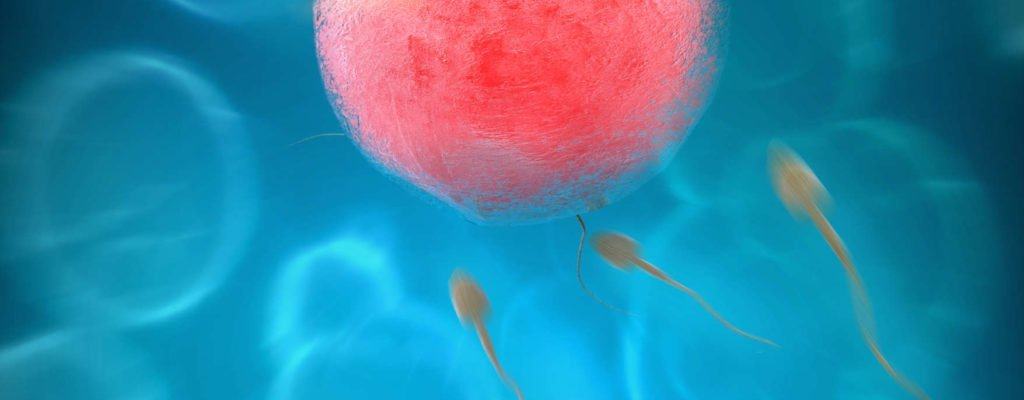
Do you know exactly where eggs and sperm come from? Or how do they find each other and combine to conceive? Come on, let's go with aFamilyToday Health to follow the baby journey that was formed.
How are eggs incubated inside a woman's body?
For women, the possibility of getting pregnant starts with the ovaries. The ovary consists of 2 oval-shaped small parts attached to the sides of the uterus (womb). Ovaries contain eggs inside. Each girl is born with 1 to 2 million eggs in her ovaries. Many eggs die almost instantly or decrease in number as you get older. From the onset of menstruation to menopause, a woman can release about 400 eggs.
During each menstrual cycle, 1-3 eggs will reach maturity in the ovaries. Then an egg is released, called ovulation . Eggs are quickly inserted into the fallopian tubes. There are two fallopian tubes, each about 10 cm long and leading from the ovary to the uterus.
Ovulation usually lasts about 12-14 days before reaching the next menstrual cycle. The exact timing of ovulation depends on your cycle. Several other factors can also affect the menstrual cycle.
The average egg lives for 24 hours after ovulation. If the egg fertilizes with a healthy sperm on its way to the uterus, conception is successful. If that fails, the egg ends its journey in the uterus and dies.
If you are not pregnant, your ovaries will stop producing estrogen and progesterone. These are the two hormones that will help maintain pregnancy. When the levels of the hormones decrease, the uterine lining is shed and the menstrual period appears.
How is sperm produced?
Unlike women who produce only one mature egg a month, the male genitals continuously produce sperm. The sole job of each sperm is to swim to and penetrate the egg.
It takes 2-3 months to create a new sperm cell. Sperm only live an average of a few weeks in a man's body and at least 40 million sperm are ejaculated with each ejaculation. It means men have to produce sperm on a regular basis.
Testosterone is the hormone responsible for sperm production. Sperm production begins in the testicles, which are the two glands contained in the scrotum sac below the penis. The testicles are very sensitive to temperature. To produce healthy sperm, they must be at a temperature of 340C, 30C below normal body temperature. Once the sperm is produced, they are stored in each testicle in the epididymis, the crest is a small, folded 6 m long tube that fits neatly next to the testicle. Just before ejaculation, sperm is brought up and mixed with semen.
Although millions of sperms are produced and produced with each ejaculation, only one sperm can fertilize an egg. Your baby's sex depends on the type of sperm inside the egg first. Sperm with a Y chromosome produces a boy, and sperm with an X produces a baby girl. There are many rumors about how to conceive a baby boy or girl. Although there is some scientific evidence, but overall, the sex of the child is determined randomly.
Have sex during the menstrual cycle
Having sex in addition to the fun also helps the bodies of men and women reach their peak and can reach an orgasmic state. This is an important biological function. In men, orgasm pushes sperm into the vagina and toward the cervix at speeds of more than 16km / h. A good start for sperm swimming in search of eggs. The contraction of the cervix also helps conception , but a woman does not need to have an orgasm for this process.
Many couples wonder if there is the best sexual position for conception. Don't worry, enjoy the great time you two spend together and have regular relationships. For those who want to conceive, sperm needs to reach the egg during ovulation.
Not all women ovulate in the middle of their menstrual cycle or at the same time during their cycle. To improve fertility, have sex every day during your cycle.












